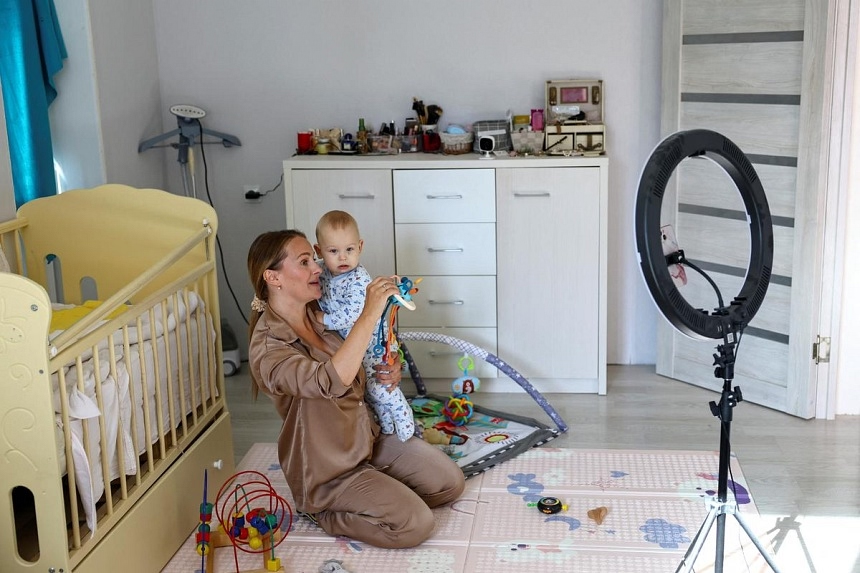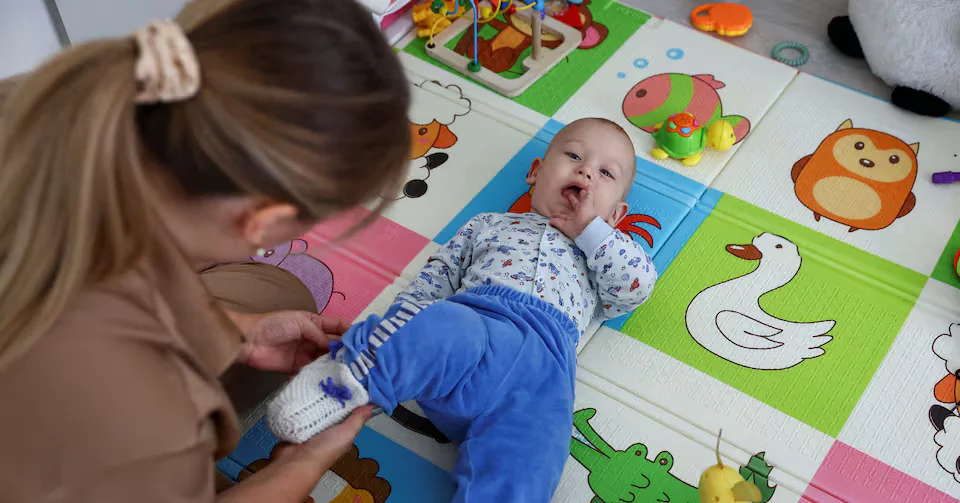In a bold move to combat Russia’s declining birth rate, the lower house of parliament has voted unanimously to ban what authorities call harmful propaganda promoting a child-free lifestyle. This decision aims to encourage larger families amid mounting concerns about the nation’s demographic crisis.
Recent official data has painted a grim picture of Russia’s population trends, with birth rates hitting a 25-year low, while mortality rates have increased, partly due to the ongoing war in Ukraine. In response, the Kremlin has warned that these figures are “catastrophic” for the country’s future.

President Vladimir Putin, who has framed Russia as a defender of “traditional values” in opposition to the West, has long advocated for women to have at least three children. He views this as a key strategy to ensure the nation’s future. The Russian government has already introduced various financial incentives to encourage childbirth, but the new law goes further by targeting media content promoting child-free living.
The bill, which is expected to be quickly approved by the upper house of parliament and by President Putin, will impose severe penalties for promoting “child-free propaganda.” Individuals found guilty could face fines of up to 400,000 roubles (about $4,100), while government officials could be fined double that amount. Legal entities could face even steeper penalties, with fines reaching up to 5 million roubles ($51,000).
The law is part of a broader pattern of restrictions on free expression in Russia, which already includes measures banning content deemed to promote “non-traditional lifestyles” or opposing views on the ongoing conflict in Ukraine.
In the first half of 2024, Russia’s birth rate plummeted, with just 599,600 children born, 16,000 fewer than the same period in 2023 and the lowest number since 1999. Meanwhile, the death toll rose by 49,000, although immigration to Russia surged by 20%.
Russia’s birth rate, estimated at 9.22 per 1,000 people in 2023, places it among the lowest globally. The CIA’s World Factbook data shows that this rate is slightly ahead of Germany’s 9.02 but lags behind China’s 9.7 and the U.S.’s 12.21.
Vyacheslav Volodin, Chairman of the State Duma and a staunch ally of Putin, defended the law, stating that it was designed to protect the younger generation from harmful influences in the media. “We must ensure that new generations grow up grounded in traditional family values,” Volodin said.
Despite the government’s push for larger families, many women in Russia are skeptical about the new law and its effectiveness. Alina Rzhanova, a 33-year-old mother from Yaroslavl, believes economic factors are the primary reason for Russia’s low birth rate. “People want children, but there’s no money,” she said. “That’s why people aren’t having children—not because of propaganda.”
Yana, a 40-year-old woman from Moscow who chose not to have children, agreed that improving living standards was key to reversing the trend. “People have children when they are confident about the future. But when mortgage rates are at 20% a year, it’s not a good time to have many children,” she said.
Both Rzhanova and Yana pointed out that discussions within the child-free community are unlikely to change the minds of young people who might otherwise choose to have children. “A lot of young people won’t read it and say ‘I don’t want children either,'” Yana noted.
While the law aims to shift societal attitudes toward family values, many Russians remain focused on addressing the broader economic challenges that contribute to the nation’s declining birth rate.




